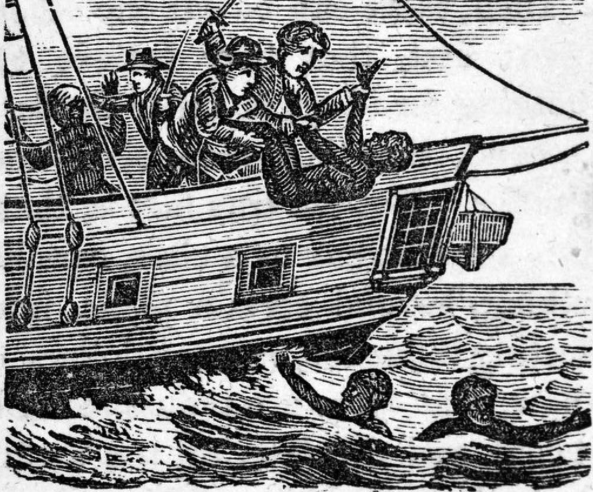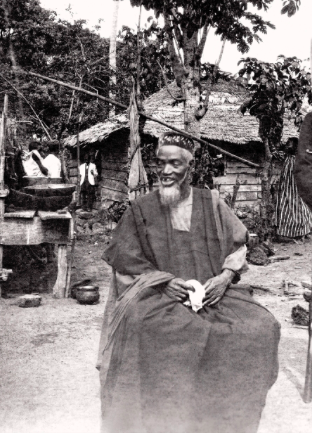#EmpireBalanceSheet Day 2. So, next colonial war in the horizon it is, I think, the Temne war of 1802-07 in what is today's Sierra Leone. This seems like a clear cut case to illustrate how European expansionism, even when accompanied by good intentions, had the potential to do 1/
some serious damage. This story also goes back to the 18th century, to 1787 more precisely, when Granville Town, later to be rebaptized as Freetown, was funded by a group of Britons who were deeply engaged in challenging the Atlantic slave trade. At a time in which Britain 2/
was one of the leading human trafficking nations in the world (between 1780 and 1790, British ships embarked 285,375 human beings to be taken as slaves to the Americas), these men and women began to challenge this state of affairs, especially after the Zong massacre of 1781. 3/
Anyhow, back to Freetown. The colony was funded under the auspices of the Sierra Leone Company, formed in London a few years earlier with the purpose of acquiring a piece of land in Africa in order to create a colony of liberated Africans. Of course, creating such a colony 4/
also implied taking land that belonged to someone else, but that was just a minor problem in the mind of Europeans on a mission. The colony was funded to spread "civilization" throughout Africa (something that many westerners still see as a need, god knows why!) as apparently 5/
at the time Europe had reached such an advanced state of civilization, that their efforts were not needed there any longer. Irony aside, though, the new colonists managed to get a small piece of land from the Koya Temne ruler, Naimbana. Now, Naimbana welcomed the colonists 6/
with open arms, and for as long as he was alive, and John Clarkson (Thomas' brother) was governor of the new colony, all was well. Still, some of Naimbana's subordinate chiefs were able to foresee that this friendship, real or otherwise, was not likely to last for long. 7/
And of course, they were right. As soon as Naimbana died in 1793 and Clarkson was dismissed as governor of the colony for sticking his neck out for the colonists, things took a turn for the worst. Following a series of local conflicts between the Susu and the Koya, the British 8/
took advantage of the opportunity and forming an alliance with the Susu, and fought a war against the Koya between 1802 and 1807. Now, the reasons for this confrontation and who was on the right side of history, are open for interpretation. One thing is clear, though. The main 9/
beneficiaries of it were the British. In 1807 they forced a peace treaty on the Koya by which they extended their territory well beyond the original lands that Naimbana had agreed to bestow on them. They took most of the litoral lands and the Susu also took Port Loko on the 10/
north shore of the river (although the Koya managed to get it back in 1815). The lands taken by the British were never recovered though. Just after this victory the former colony became a Crown colony. Over the new decades, the British would find ways to take more and more 11/
lands from the Temne Koya and other neighboring peoples. These expansionist campaigns were often justified by the necessity to stop their involvement in slave trading, as now the British were judges and executioners of abolitionist policies in the Atlantic basin. And yes, 12/
while these policies led to the liberation of thousands of Africans from the hands of ruthless slave traders, they also allowed the British to justify waging uneven wars of conquest and colonization against peoples who had lived in those lands for centuries. Governors like 13/
Charles McCarthy (we will talk again about him when we get to the First Anglo-Ashanti War) invaded and took lands away without as much as an excuse. The frictions between the dispossessed Koya and the British continued for years. Between 1838-1841 they fought the Kossoh War 14/
and in 1860 they were bombarded by the British, leading them to expel the members of the Church Missionary Society living in their lands. All in all, the Temne war of 1802-07 did not really concluded in the date books and articles suggest. It continued at least until 15/
the end of the century, when in 1898 the so-called Hut Tax Revolt led by Bai Bureh was ruthlessly repressed by the British who had inherited the lands from those first friendly, well intentioned colonists. 16/
For further readings on this topic, see the classic History of Sierra Leone by Christopher Fyfe, and the most recent works of historians Paul Lovejoy, @BronwenEverill, Richard Anderson, Katrina Keefer, Phil Misevich, Emma Christopher, and Pedreic Scanlan, among many others. 17/

 Read on Twitter
Read on Twitter



